e-artnow presents to you this unique collection of the greatest works of literature written by the masters of the craft: Leaves of Grass (Walt Whitman) Siddhartha (Herman Hesse) Middlemarch (George Eliot) The Madman: His Parables and Poems (Kahlil Gibran) Ward No. 6 (Anton Chekhov) Moby-Dick (Herman Melville) The Picture of Dorian Gray (Oscar Wilde) Crime and Punishment (Fyodor Dostoevsky) The Overcoat (Gogol) Ulysses (James Joyce) Walden (Henry David Thoreau) Hamlet (Shakespeare) Romeo and Juliet (Shakespeare) Macbeth (Shakespeare) The Waste Land (T. S. Eliot) Odes (John Keats) The Flowers of Evil (Charles Baudelaire) Ivanhoe (Sir Walter Scott) Robinson Crusoe (Daniel Defoe) Little Women (Louisa May Alcott) Pride and Prejudice (Jane Austen) Emma (Jane Austen) Jane Eyre (Charlotte Brontë) Wuthering Heights (Emily Brontë) Lorna Doone (R.D. Blackmore) The Lady of the Camellias (Alexandre Dumas) Anna Karenina (Leo Tolstoy) Vanity Fair (Thackeray) Dangerous Liaisons (De Laclos) The Mill on the Floss (George Eliot) Dona Perfecta (Benito Pérez Galdós) Swann's Way (Marcel Proust) Sons and Lovers (D. H. Lawrence) David Copperfield (Charles Dickens) Great Expectations (Charles Dickens) Jude the Obscure (Thomas Hardy) The Wings of the Dove (Henry James) The History of a Scoundrel or Bel-Ami (Guy de Maupassant) Two Years in the Forbidden City (Princess Der Ling) Les Misérables (Victor Hugo) The Count of Monte Cristo (Alexandre Dumas) Pepita Jimenez (Juan Valera) The Way We Live Now (Anthony Trollope) The Red Badge of Courage (Stephen Crane) A Room with a View (E. M. Forster) Sister Carrie (Theodore Dreiser) The Blazing World (Margaret Cavendish) The Jungle (Upton Sinclair) The Republic (Plato) The Golden Ass (Apuleius) Meditations (Marcus Aurelius) Art of War (Sun Tzu) Candide (Voltaire) Don Quixote (Miguel de Cervantes) Decameron (Giovanni Boccaccio) Narrative of the Life of Frederick Douglass (Frederick Douglass) Dream Psychology (Sigmund Freud) The Einstein Theory of Relativity by H. A. Lorentz The Science of Being Well (Wallace D. Wattles) As a Man Thinketh (James Allen) The Mysterious Affair at Styles (Agatha Christie) A Study in Scarlet (Arthur Conan Doyle) The Sign of Four (Arthur Conan Doyle) Heart of Darkness (Joseph Conrad) The Call of Cthulhu (H. P. Lovecraft) The Legend of Sleepy Hollow (Washington Irving) Frankenstein (Mary Shelley) The War of the Worlds (H. G. Wells) The Raven (Edgar Allan Poe) The Black Cat (Edgar Allan Poe) The Sun Also Rises (Ernest Hemingway) The Wonderful Wizard of Oz (L. Frank Baum) Treasure Island (Robert Louis Stevenson) The Wonderful Adventures of Nils Holgersson (Selma Lagerlöf) The Adventures of Tom Sawyer & Huckleberry Finn (Mark Twain) The Call of the Wild (Jack London) White Fang (Jack London) Journey to the Centre of the Earth (Jules Verne) Alice in Wonderland (Lewis Carroll) The Secret Garden (Frances Hodgson Burnett) A Little Princess (Frances Hodgson Burnett) The Jungle Book (Rudyard Kipling) Tarzan of the Apes (Edgar Rice Burroughs) The Complete Fairytales of Brothers Grimm The Complete Fairytales of Hans Christian Andersen Pygmalion (George Bernard Shaw) Botchan (Soseki Natsume) The Sorrows of Young Werther (Johann Wolfgang von Goethe)
90 Masterpieces of World Literature (Vol.I) : Novels, Poetry, Plays, Short Stories, Essays, Psychology & Philosophy
Authors:
- Jules Verne
- Lewis Carroll
- Selma Lagerlöf
- Sigmund Freud
- Charles Dickens
- Plato
- Mark Twain
- Walt Whitman
- Oscar Wilde
- Robert Louis Stevenson
- Edgar Allan Poe
- William Shakespeare
- Giovanni Boccaccio
- Charlotte Brontë
- Anne Brontë
- Emily Brontë
- Henry David Thoreau
- Jack London
- Henry James
- Louisa May Alcott
- Victor Hugo
- Arthur Conan Doyle
- Frances Hodgson Burnett
- Joseph Conrad
- Jane Austen
- Edgar Rice Burroughs
- Herman Melville
- James Allen
- Guy de Maupassant
- George Eliot
- Walter Scott
- Thomas Hardy
- Benito Pérez Galdós
- Daniel Defoe
- Agatha Christie
- Upton Sinclair
- Anthony Trollope
- Alexandre Dumas
- Rudyard Kipling
- Marcel Proust
- Washington Irving
- Juan Valera
- Charles Baudelaire
- William Makepeace Thackeray
- Theodore Dreiser
- Voltaire
- Apuleius
- Stephen Crane
- Frederick Douglass
- John Keats
- James Joyce
- Kahlil Gibran
- Ernest Hemingway
- Soseki Natsume
- Princess Der Ling
- L. Frank Baum
- H. G. Wells
- H. A. Lorentz
- T. S. Eliot
- D. H. Lawrence
- E. M. Forster
- H. P. Lovecraft
- Marcus Aurelius
- Hans Christian Andersen
- Anton Chekhov
- Leo Tolstoy
- Fyodor Dostoevsky
- Nikolai Gogol
- George Bernard Shaw
- Miguel de Cervantes
- Mary Shelley
- Wallace D. Wattles
- R.D. Blackmore
- Pierre Choderlos de Laclos
- Johann Wolfgang Goethe
- Brothers Grimm
- Margaret Cavendish
- Herman Hesse
- Sun Tzu
Format:
Duration:
- 23145 pages
Language:
English
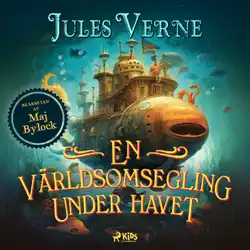
En världsomsegling under havet
Maj Bylock, Jules Verne
audiobookbook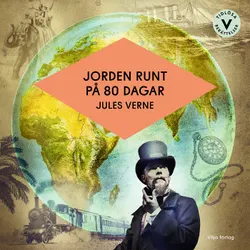
Jorden runt på 80 dagar (lättläst)
Jules Verne
audiobookbook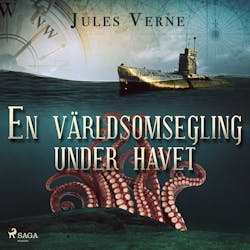
En världsomsegling under havet
Jules Verne
audiobookbook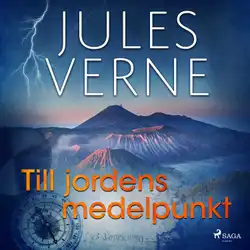
Till jordens medelpunkt
Jules Verne
audiobookbook
Jorden runt på 80 dagar
Jules Verne
audiobookbook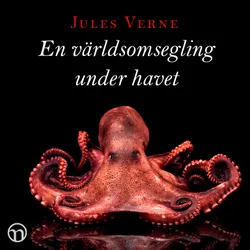
En världsomsegling under havet
Jules Verne
audiobookbook
En resa till jordens medelpunkt
Jules Verne
audiobookbook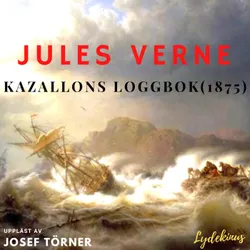
Kazallons loggbok
Jules Verne
audiobookbook
90 Masterpieces You Must Read (Vol.1) : Novels, Poetry, Plays, Short Stories, Essays, Psychology & Philosophy: The Madman, Moby-Dick, Siddhartha, Crime and Punishment, Hamlet, Great Expectations, Little Women, Meditations, The Einstein Theory, Heart of Darkness, The Red Badge of Courage
Walt Whitman, Herman Hesse, George Eliot, Kahlil Gibran, Anton Chekhov, Herman Melville, Oscar Wilde, Fyodor Dostoevsky, Nikolai Gogol, James Joyce, Henry David Thoreau, William Shakespeare, T. S. Eliot, John Keats, Charles Baudelaire, Walter Scott, Daniel Defoe, Louisa May Alcott, Jane Austen, Charlotte Brontë, Emily Brontë, Anne Brontë, Leo Tolstoy, Benito Pérez Galdós, William Makepeace Thackeray, Pierre Choderlos de Laclos, R.D. Blackmore, Alexandre Dumas, Marcel Proust, D. H. Lawrence, Charles Dickens, Thomas Hardy, Henry James, Guy de Maupassant, Princess Der Ling, Victor Hugo, Juan Valera, Anthony Trollope, Stephen Crane, E. M. Forster, Theodore Dreiser, Margaret Cavendish, Upton Sinclair, Plato, Apuleius, Marcus Aurelius, Sun Tzu, Voltaire, Miguel de Cervantes, Giovanni Boccaccio, Frederick Douglass, Sigmund Freud, H. A. Lorentz, Wallace D. Wattles, James Allen, Agatha Christie, Arthur Conan Doyle, Joseph Conrad, H. P. Lovecraft, Washington Irving, Mary Shelley, H. G. Wells, Edgar Allan Poe, Ernest Hemingway, L. Frank Baum, Robert Louis Stevenson, Mark Twain, Selma Lagerlöf, Jack London, Jules Verne, Lewis Carroll, Frances Hodgson Burnett, Rudyard Kipling, George Bernard Shaw, Soseki Natsume, Johann Wolfgang Goethe, Edgar Rice Burroughs, Brothers Grimm, Hans Christian Andersen
book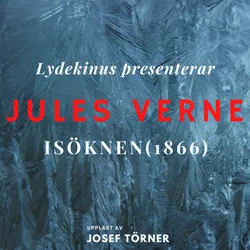
Kapten Hatteras resa del 2: Isöknen
Jules Verne
audiobook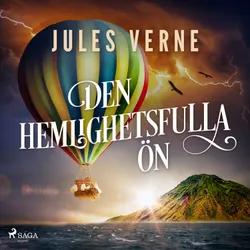
Den hemlighetsfulla ön
Jules Verne
audiobookbook
Around the World in Eighty Days
Jules Verne
audiobookbook
Others have also read
Skip the list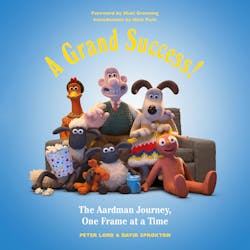
A Grand Success! - The Aardman Journey, One Frame at a Time (Unabridged)
Peter Lord, David Sproxton
audiobook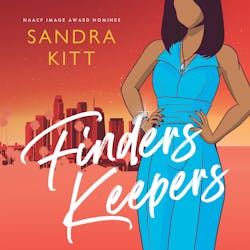
Finders Keepers
Sandra Kitt
audiobook
Still The One - They're never ever getting back together ... right? (Unabridged)
Aimee Brown
audiobook
Husband Auditions
Angela Ruth Strong
audiobook
That Forever Feeling & Security Blanket
Delores Fossen, Linda Lael Miller
audiobook
The Flirty Vet
Casey Cox
audiobook
Did Not Finish
Nicola Marsh
audiobook
The Compton Cowboys : The New Generation of Cowboys in America's Urban Heartland
Walter Thompson-Hernandez
audiobook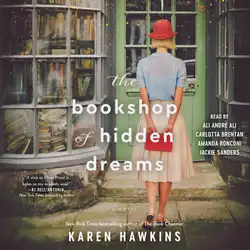
The Bookshop of Hidden Dreams
Karen Hawkins
audiobookbook
Highland Hearts Holiday Bookshop
Tricia O'Malley
audiobook
The Lights On Knockbridge Lane
Roan Parrish
audiobook
Hugh (Single Dads of Gaynor Beach Book 4)
Gabbi Grey
book
- 1128 books
Jules Verne
Jules Verne (1828–1905) was a prolific French author whose writing about various innovations and technological advancements laid much of the foundation of modern science fiction. Verne’s love of travel and adventure, including his time spent sailing the seas, inspired several of his short stories and novels.
Read more - 421 books
Lewis Carroll
Charles Lutwidge Dodgson, better known by his pen name Lewis Carroll, was an English writer, mathematician, logician, and photographer. He is especially remembered for bringing to life the beloved and long-revered tale of Alice in Alice’s Adventures in Wonderland (1865) and its sequel Through the Looking-Glass (1871).
Read more - 151 books
Sigmund Freud
Sigmund Freud (1856-1939) was an Austrian neurologist and psychologist who founded the psychoanalytic school of psychology. Although his theories remain controversial until this day, Freud made a lasting impact on Western culture.
Read more - 1751 books
Charles Dickens
Charles Dickens was born in 1812 and grew up in poverty. This experience influenced ‘Oliver Twist’, the second of his fourteen major novels, which first appeared in 1837. When he died in 1870, he was buried in Poets’ Corner in Westminster Abbey as an indication of his huge popularity as a novelist, which endures to this day.
Read more - 1259 books
Mark Twain
Mark Twain, born Samuel Langhorne Clemens in 1835, left school at age 12. His career encompassed such varied occupations as printer, Mississippi riverboat pilot, journalist, travel writer, and publisher, which furnished him with a wide knowledge of humanity and the perfect grasp of local customs and speech manifested in his writing. It wasn't until The Adventures of Huckleberry Finn (1885), that he was recognized by the literary establishment as one of the greatest writers America would ever produce. Toward the end of his life, plagued by personal tragedy and financial failure, Twain grew more and more cynical and pessimistic. Though his fame continued to widen--Yale and Oxford awarded him honorary degrees--he spent his last years in gloom and desperation, but he lives on in American letters as "the Lincoln of our literature."
Read more - 117 books
Walt Whitman
Walt Whitman (1819-1892), arguably one of America's most influential and innovative poets, was born into a working-class family in West Hills, New York, and grew up in Brooklyn. His Leaves of Grass, from which "When I Heard the Learn'd Astronomer" comes, is considered one of the central volumes in the history of world poetry. While most other major writers of his time enjoyed a highly structured, classical education at private institutions, Whitman forged his own rough and informal curriculum, and his brief stint at teaching suggests that Whitman employed what were then progressive techniques -- encouraging students to think aloud rather than simply recite, and involving his students in educational games.
Read more - 844 books
Oscar Wilde
Oscar Fingal O'Flahertie Wills Wilde was born on the 16th October 1854 and died on the 30th November 1900. He was an Irish playwright, poet, and author of numerous short stories and one novel. Known for his biting wit, he became one of the most successful playwrights of the late Victorian era in London, and one of the greatest celebrities of his day. Several of his plays continue to be widely performed, especially The Importance of Being Earnest.
Read more - 580 books
Robert Louis Stevenson
Robert Lewis Balfour Stevenson was born on 13 November 1850, changing his second name to ‘Louis’ at the age of eighteen. He has always been loved and admired by countless readers and critics for ‘the excitement, the fierce joy, the delight in strangeness, the pleasure in deep and dark adventures’ found in his classic stories and, without doubt, he created some of the most horribly unforgettable characters in literature and, above all, Mr. Edward Hyde.
Read more - 1123 books
Edgar Allan Poe
Edgar Allan Poe (1809-1849) was an American writer, poet, and critic. Best known for his macabre prose work, including the short story “The Tell-Tale Heart,” his writing has influenced literature in the United States and around the world.
Read more - 1557 books
William Shakespeare
William Shakespeare is widely regarded as the greatest playwright the world has seen. He produced an amount of work; 37 plays, 154 sonnets, and 5 poems. He died on 23rd April 1616, aged 52, and was buried in the Holy Trinity Church, Stratford.
Read more - 459 books
Charlotte Brontë
Charlotte Brontë (1816–1855) was an English novelist and poet, the eldest of the three Brontë sister authors. Her novels are considered masterpieces of English literature – the most famous of which is Jane Eyre.
Read more - 193 books
Anne Brontë
Anne Brontë (1820–1849) was an English novelist and poet, best known for her novels Agnes Grey and The Tenant of Wildfell Hall.
Read more - 359 books
Emily Brontë
Emily Brontë (1818–1848) was an English novelist and poet, best remembered for her only novel, Wuthering Heights. The novel’s violence and passion shocked the Victorian public and led to the belief that it was written by a man. Although Emily died young (at the age of 30), her sole complete work is now considered a masterpiece of English literature.
Read more - 146 books
Henry David Thoreau
American essayist, poet, and practical philosopher, best-known for his autobiographical story of life in the woods, WALDEN (1854). Thoreau became one of the leading personalities in New England Transcendentalism. He wrote tirelessly but earned from his books and journalism little. Thoreau's CIVIL DISOBEDIENCE (1849) influenced Gandhi in his passive resistance campaigns, Martin Luther King, Jr., and at one time the politics of the British Labour Party. Henry David Thoreau was born in Concord, Massachusetts, which was center of his life, although he spent several years in his childhood in the neighboring towns and later elsewhere. He died of tuberculosis, and he is buried in his family's plot near the graves of his friends Hawthorne, Alcott, Emerson, and Channing on Author's Ridge in Concord's Sleepy Hollow Cemetery.
Read more - 1076 books
Jack London
Jack London (1876–1916) was a prolific American novelist and short story writer. His most notable works include White Fang, The Call of the Wild, and The Sea-Wolf. He was born in San Francisco, California.
Read more - 846 books
Henry James
Henry James (1843–1916) was an American writer, highly regarded as one of the key proponents of literary realism, as well as for his contributions to literary criticism. His writing centres on the clash and overlap between Europe and America, and is regarded as his most notable work.
Read more - 428 books
Louisa May Alcott
Louisa May Alcott was born in 1832 in Germantown, Pennsylvania. She is best known for Little Women (1868), which is loosely based on her own life and proved to be one of the most popular children’s books ever written. Three sequels followed: Good Wives (1869), Little Men (1871), and Jo’s Boys (1886). Alcott was the daughter of the famous transcendentalist Bronson Alcott and was friend of Emerson and Thoreau. In addition to writing, she worked as a teacher, governess, and Civil War nurse, as well as being an advocate of abolition, women’s rights, and temperance. She died in 1888 and is buried in Sleepy Hollow cemetery in Concord, Massachusetts.
Read more - 539 books
Victor Hugo
Victor Hugo, a major leader of the French Romantic Movement, was one of the most influential figures in nineteenth-century literature. By the age of thirty, he had established himself as a master in every domain of literature--drama, fiction, and lyric poetry. Hugo's private life was as unconventional and exuberant as his literary creations. At twenty, he married after a long, idealistic courtship; but later in life was infamous for his scandalous escapades. In 1851, he was exiled for his passionate opposition to Napoleon III. Hugo's rich, emotional novels, Notre Dame de Paris and Les Miserables, have made him one of the most widely read authors of all time.
Read more - 1205 books
Arthur Conan Doyle
Arthur Conan Doyle was a British writer and physician. He is the creator of the Sherlock Holmes character, writing his debut appearance in A Study in Scarlet. Doyle wrote notable books in the fantasy and science fiction genres, as well as plays, romances, poetry, non-fiction, and historical novels.
Read more - 205 books
Frances Hodgson Burnett
Frances Hodgson Burnett (1849–1924) was born in Manchester, England, but moved to America as a teenager. A gifted writer from childhood, Burnett took to writing as a means of supporting her family, creating stories for Lady’s Book, Harper’s Bazaar, and other magazines. Though she began writing novels for adults, she gained lasting success writing for children. She is best known for Little Lord Fauntleroy (1855–1856), A Little Princess (1905), and The Secret Garden (1911).
Read more - 740 books
Joseph Conrad
Polish-born Joseph Conrad is regarded as a highly influential author, and his works are seen as a precursor to modernist literature. His often tragic insight into the human condition in novels such as Heart of Darkness and The Secret Agent is unrivalled by his contemporaries.
Read more - 1006 books
Jane Austen
Jane Austen (1775-1817) was an English novelist known primarily for her six major novels—Sense and Sensibility, Pride and Prejudice, Mansfield Park, Emma, Northanger Abbey, and Persuasion—which observe and critique the British gentry of the late eighteenth century. Her mastery of wit, irony, and social commentary made her a beloved and acclaimed author in her lifetime, a distinction she still enjoys today around the world.
Read more - 299 books
Edgar Rice Burroughs
Edgar Rice Burroughs (1875–1950) is best known for his creation of Tarzan of the jungle and of the heroic John Carter who adventured on Mars, although he is also the author of many other novels in a range of genres.
Read more - 382 books
Herman Melville
Herman Melville was born in 1819 in New York City. After his father's death he left school for a series of clerical jobs before going to sea as a young man of nineteen. At twenty-one he shipped aboard the whaler Acushnet and began a series of adventures in the South Seas that would last for three years and form the basis for his first two novels, Typee and Omoo. Although these two novels sold well and gained for Melville a measure of fame, nineteenth-century readers were puzzled by the experiments with form that he began with his third novel, Mardi, and continued brilliantly in his masterpiece, Moby-Dick. During his later years spent working as a customs inspector on the New York docks, Melville published only poems, compiled in a collection entitled Battle-Pieces, and died in 1891 with Billy Budd, Sailor, now considered a classic, still unpublished.
Read more - 299 books
James Allen
Born in 1864 in England, James Allen took his first job at fifteen to support his family. Allen worked as a factory knitter and later a private secretary before writing his first book, From Poverty to Power, in 1901. In 1903 he completed his best-known work: As a Man Thinketh. Allen wrote nineteen books, including his spiritual journal, The Light of Reason, before he died at age forty-seven in 1912. While not widely known during his lifetime, Allen later came to be seen as a pioneer of contemporary inspirational literature.
Read more - 349 books
George Eliot
George Eliot, born as Mary Ann Evans in 1819, grew up in England, quickly learning about the Victorian culture around her despite the country¿s increasing growth of industrialism. Eliot did exceptionally well at the boarding schools she attended as a child. Her road to success was being paved. At the age of seventeen her mother died, leaving her to manage the household with the help of her sister. Yet Eliot would become much more than a homemaker. Soon she began writing for the Westminster Review, eventually rising to the rank of assistant editor. It was here where she met the already married George Henry Lewes, with whom she lived until his death. It was this relationship which helped her rise in the ranks of the literary community, eventually becoming a famous author. Eliot’s move to London in 1849 marked a new beginning for her promising career, quickly improving her circle of literary friends. Soon she was disowned by her family when they realized she was living in sin with Lewes, whom she regarded as her true, if not legal, husband. Eliot would also leave her church, deciding that she didn’t believe in the faith any longer. Despite her rejection by her family and others for these matters, Eliot would soon gain acceptance as one of the foremost (and highest paid) novelists of her time. Silas Marner was published in 1861 under the penname of George Eliot, when she was forty-two years of age.
Read more - 514 books
Walter Scott
Sir Walter Scott was born in Scotland in 1771 and achieved international fame with his work. In 1813 he was offered the position of Poet Laureate, but turned it down. Scott mainly wrote poetry before trying his hand at novels. His first novel, Waverley, was published anonymously, as were many novels that he wrote later, despite the fact that his identity became widely known.
Read more - 572 books
Thomas Hardy
Thomas Hardy was born in 1840 in Dorchester, Dorset. He enrolled as a student in King’s College, London, but never felt at ease there, seeing himself as socially inferior. This preoccupation with society, particularly the declining rural society, featured heavily in Hardy’s novels, with many of his stories set in the fictional county of Wessex. Since his death in 1928, Hardy has been recognised as a significant poet, influencing The Movement poets in the 1950s and 1960s.
Read more - 481 books
Daniel Defoe
Daniel Defoe was born at the beginning of a period of history known as the English Restoration, so-named because it was when King Charles II restored the monarchy to England following the English Civil War and the brief dictatorship of Oliver Cromwell. Defoe’s contemporaries included Isaac Newton and Samuel Pepys.
Read more - 684 books
Agatha Christie
Agatha Christie is known throughout the world as the Queen of Crime. Her books have sold over a billion copies in English with another billion in over 70 foreign languages. She is the most widely published author of all time and in any language, outsold only by the Bible and Shakespeare. She is the author of 80 crime novels and short story collections, 20 plays, and six novels written under the name of Mary Westmacott.
Read more - 81 books
Upton Sinclair
Upton Sinclair was born in Baltimore in September 1878. His father moved the family to New York City in 1888. Although his own family was extremely poor, he spent periods of time living with his wealthy grandparents. He later argued that witnessing these extremes turned him into a socialist. Sinclair funded his college education by writing stories for newspapers and magazines. Sinclair’s first novel was published in 1901. Sinclair was extremely active in socialist politics throughout his life. His novel Dragon’s Teeth (1942) on the rise of Nazism won him the Pulitzer Prize. By the time Upton Sinclair died in 1968, he had published more than ninety books.
Read more - 945 books
Alexandre Dumas
Alexander Dumas (1802–1870), author of more than ninety plays and many novels, was well known in Parisian society and was a contemporary of Victor Hugo. After the success of The Count of Monte Cristo, Dumas dumped his entire fortune into his own Chateau de Monte Cristo-and was then forced to flee to Belgium to escape his creditors. He died penniless but optimistic.
Read more - 730 books
Rudyard Kipling
Rudyard Kipling was born in Bombay, India, in 1865. One of the most revered writers in recent history, many of his works are deemed classic literature. To this day, he maintains an avid following and reputation as one of the greatest storytellers of the past two centuries. In 1907, he received the Nobel Prize for Literature. He died in 1936, but his stories live on—even eighty years after his passing.
Read more - 315 books
Marcel Proust
Marcel Proust (1871-1922) was one of the handful of indisputably great writers of this century. Troubled by ill-health throughout his life, he largely withdrew from society in 1907, to work on his incomparable 16-volume novel ‘In Search of Lost Time’. He lived long enough to see the publication of its first volumes, and to experience its universal reception as a work of genius.
Read more - 527 books
Washington Irving
Washington Irving was an American author, essayist, biographer, historian, and diplomat of the early 19th century.
Read more - 136 books
Theodore Dreiser
Theodore Herman Albert Dreiser (1871–1945) was an American author of the naturalist school, known for dealing with the gritty reality of life. Sister Carrie was his first novel.
Read more - 216 books
Stephen Crane
Stephen Crane (1871-1900) was born in New Jersey and was the last of fourteen children. While The Red Badge of Courage is considered Crane's masterpiece, he is also known for another brilliant yet grim work of fiction, Maggie, A Girl of the Streets (1893), as well as his poetry and journalism. Crane moved to Europe in 1897 and died in Germany at the age of twenty-nine from tuberculosis.
Read more - 181 books
Frederick Douglass
Frederick Douglass was born into a family of slavery in early America. Douglass attributes his road to freedom as beginning with his being sent from the Maryland plantation of his birth to live in Baltimore as a young boy. There, he learned to read and, more importantly, learned the power of literacy. In early adolescence, he was returned to farm work, suffered abuse at the hands of cruel overseers, and witnessed abuse visited on fellow slaves. He shared his knowledge of reading with a secret "Sunday school" of 40 fellow slaves during his last years of bondage. In his early 20's, he ran away to the North and found refuge among New England abolitionists.
Read more - 138 books
John Keats
John Keats (1795–1821) was an English Romantic poet. He was one of the main figures of the second generation of Romantic poets along with Lord Byron and Percy Bysshe Shelley, despite his work having been in publication for only four years before his death.
Read more - 349 books
James Joyce
James Joyce (1882–1941) is best known for his experimental use of language and his exploration of new literary methods. His subtle yet frank portrayal of human nature, coupled with his mastery of language, made him one of the most influential novelists of the 20th century. Joyce’s use of “stream-of-consciousness” reveals the flow of impressions, half thoughts, associations, hesitations, impulses, as well as the rational thoughts of his characters. The main strength of his masterpiece novel, Ulysses (1922) lies in the depth of character portrayed using this technique. Joyce’s other major works include Dubliners, a collection of short stories that portray his native city, a semi-autobiographical novel called A Portrait of the Artist As a Young Man (1916), and Finnegan’s Wake (1939).
Read more - 150 books
Kahlil Gibran
Kahlil Gibran (1883–1931) was a Lebanese-American poet and artist. Born in the town of Bsharri, Lebanon (then part of the Ottoman Empire), he immigrated to the United States in 1895 and is best known for The Prophet, his book of prose poetry.
Read more - 136 books
Ernest Hemingway
Ernest Hemingway did more to change the style of English prose than any other writer of his time. Publication of The Sun Also Rises and A Farewell to Arms immediately established Hemingway as one of the greatest literary lights of the twentieth century. His classic novel The Old Man and the Sea won the Pulitzer Prize in 1953. Hemingway was awarded the Nobel Prize for Literature in 1954. His life and accomplishments are explored in-depth in the PBS documentary film from Ken Burns and Lynn Novick, Hemingway. Known for his larger-than-life personality and his passions for bullfighting, fishing, and big-game hunting, he died in Ketchum, Idaho on July 2, 1961.
Read more - 332 books
L. Frank Baum
Lyman Frank Baum was born in Chittenango, New York, on May 15, 1856. Over the course of his life, Baum raised fancy poultry, sold fireworks, managed an opera house, opened a department store, and an edited a newspaper before finally turning to writing. In 1900, he published his best known book The Wonderful Wizard of Oz. Eventually he wrote fifty-five novels, including thirteen Oz books, plus four “lost” novels, eighty-three short stories, more than two hundred poems, an unknown number of scripts, and many miscellaneous writings. Baum died on May 6, 1919. He is buried in the Forest Lawn Memorial Park Cemetery, in Glendale, California.
Read more - 768 books
H. G. Wells
English author H. G. Wells is best known for his work in the science fiction genre. He was also a prolific writer in many other genres, including contemporary novels, history, politics, and social commentary, even writing textbooks and rules for war games. He was born on September 21, 1866, and died on August 13, 1946.
Read more - 41 books
T. S. Eliot
T. S. Eliot, (1888-1965) recast 20th century English poetry with a whole new vocabulary of technique, giving voice to a bold, vibrantly original Modernist style. In addition to his poetry, his body of work includes many landmark critical essays, as well as plays such as and . In 1948, he won the Nobel Prize for Literature.
Read more - 188 books
D. H. Lawrence
David Herbert (D. H.) Lawrence was a prolific English novelist, essayist, poet, playwright, literary critic and painter. His most notable works include Lady Chatterley’s Lover, The Rainbow, Sons and Lovers and Women in Love.
Read more - 423 books
H. P. Lovecraft
H. P. Lovecraft was an American author of horror, fantasy, and science fiction, especially the subgenre known as weird fiction.
Read more - 206 books
Marcus Aurelius
Marcus Aurelius ruled the Roman Empire from 161 to 180 AD. Born to an upper-class Roman family in 121, Aurelius was adopted by his uncle, the emperor Antoninus Pius, in 138. Aurelius studied Greek and Latin literature, philosophy, and law, and was especially influenced by the Stoic thinker Epictetus. After Pius’s death, Aurelius succeeded the throne alongside his adoptive brother, Lucius Verus. His reign was marked by plague, numerous military conflicts, and the deaths of friends and family—including Lucius Verus in 169. Despite these struggles, the Empire flourished under Marcus’s rule as the last emperor of the Pax Romana, an era from 27 to 180 of relative peace and prosperity for the Roman Empire. Aurelius wrote his Meditations as spiritual exercises never intended for publication, and died at fifty-eight while on campaign against the Germanic tribes.
Read more - 565 books
Hans Christian Andersen
One of the most prolific and beloved writers of all time, Danish poet and author Hans Christian Andersen is best known for his fairy tales. Born in Odense, Denmark, in 1805, Andersen published his first story at 17. In all, he wrote more than 150 stories before his death in 1875.
Read more - 439 books
Anton Chekhov
Anton Chekhov was born on January 29, 1860 in Taganrog, Russia. He graduated from the University of Moscow in 1884. Chekhov died of tuberculosis in Germany on July 14, 1904, shortly after his marriage to actress Olga Knipper, and was buried in Moscow.
Read more - 808 books
Leo Tolstoy
Leo Tolstoy grew up in Russia, raised by a elderly aunt and educated by French tutors while studying at Kazen University before giving up on his education and volunteering for military duty. When writing his greatest works, War and Peace and Anna Karenina, Tolstoy drew upon his diaries for material. At eighty-two, while away from home, he suffered from declining health and died in Astapovo, Riazan in 1910.
Read more - 84 books
George Bernard Shaw
George Bernard Shaw, born in Dublin in 1856, was essentially shy, yet created the persona of G.B.S., the showman, controversialist, satirist, critic, pundit, wit, intellectual buffoon and dramatist. Commentators brought a new adjective into the English language: Shavian, a term used to embody all his brilliant qualities. After his arrival in London in 1876 he became an active Socialist and a brilliant platform speaker. He wrote on many social aspects of the day: on Commonsense about the War (1914), How to Settle the Irish Question (1917), and The Intelligent Woman's Guide to Socialism and Capitalism (1928). He undertook his own education at the British Museum and consequently became keenly interested in cultural subjects. Thus his prolific output included music, art and theatre reviews which were collected into several volumes: Music In London 1890-1894 (3 vols., 1931); Pen Portraits and Reviews (1931); and Our Theatres in the Nineties (3 vols., 1931). He wrote five novels and some shorter fiction including The Black Girl in Search of God and some Lesser Tales and Cashel Byron's Profession. He conducted a strong attack on the London theatre and was closely associated with the intellectual revival of British theatre. His many plays fall into several categories: 'Plays Pleasant'; 'Plays Unpleasant'; comedies, chronicle-plays, 'metabiological Pentateuch' (Back to Methuselah, a series of plays) and 'political extravaganzas'. Shaw died in 1950.
Read more - 165 books
Miguel de Cervantes
Miguel de Cervantes (September 29, 1547 – April 22, 1616) was a Spanish novelist, poet, and playwright. His novel, Don Quixote, was considered the first modern European novel and is a classic of Western literature.
Read more - 478 books
Mary Shelley
Mary Shelley (1797–1851) was born to well-known parents: author and feminist Mary Wollstonecraft and philosopher William Godwin. When Mary was sixteen, she met the young poet Percy Bysshe Shelley, a devotee of her father’s teachings. In 1816, the two of them travelled to Geneva to stay with Lord Byron. One evening, while they shared ghost stories, Lord Byron proposed that they each write a ghost story of their own. Frankenstein was Mary’s contribution. Other works of hers include Mathilda, The Last Man, and The Fortunes of Perkin Warbeck.
Read more - 106 books
Wallace D. Wattles
Wallace D. Wattles was born in the United States in 1860, shortly before the Civil War. Later in life, he began his tireless study of the religious beliefs and philosophies of the world. It was through this relentless examination of such philosophers as Descartes, Hegel, and Ralph Waldo Emerson that he developed his own principles, successfully applied them to his life, and shared them with the world in his innovative 1910 book, The Science of Getting Rich. He died one year later. Wattles’s ideas have lived on to inspire future generations to greatness.
Read more - 205 books
Sun Tzu
Sun Tzu (544 B.C.–496 B.C.) was an ancient Chinese military general, strategist, and philosopher from the Zhou Dynasty, who has had a significant impact on Chinese and Asian history and culture, both as an author of The Art of War as well as through legend.
Read more
